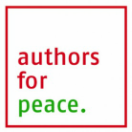Don’t Cross this Line
by Priya Basil
You’re invited to a conference in Denver. You’re issued a US visa. You’re checking in for the American Airlines flight to the US when the airline personnel tell you that due to “Border Crossing Security” they’re required to inform American authorities of your presence at the airport. You’re then advised that your entry to the US has been refused. You're not allowed to board the flight and are told to go back home.
This was the experience of Iliya Trojanow on Monday 30th September 2013 as he tried to fly from Brazil to Miami. Mr. Trojanow, a Bulgarian German writer, has long been critical about surveillance in general and has recently been very outspoken about the NSA scandal. Many, including the PEN American Center, fear that he was excluded from the US on ideological grounds.
Literature does not have to be political, but writers sometimes must be. Where and in what circumstances we do this determines the level of risk it entails, yet throughout history writers have asserted their freedom to speak even knowing a huge personal cost might be exacted. Those of us writing in countries like the UK and Germany would like to believe we can reasonably express our opinion on anything without threat to our person or livelihood. Iliya Trojanow’s experience shows this is not the case. It is shocking that a political expression of outrage made in democratic Western Europe can result in barred entry to America, the country whose national anthem proclaims it as “the land of the free and the home of the brave.” The exclusion of Mr. Trojanow suggests the opposite for it is a repressive and cowardly act. Every country has a right to police its borders, none should have the right to stop someone crossing them just because he or she disagrees with those in power.
There are times when writers have to step beyond their work and make clear what it is they stand for. Since the revelations from Edward Snowden we have entered one of these times. Writers in Germany understood this quickly. In a matter of weeks, an open letter to Chancellor Merkel from the novelist Juli Zeh was signed by German authors, including Mr. Trojanow, and registered as a public petition on change.org. On Wednesday 18th September, I joined in as Zeh and twenty other writers marched on the Chancellery to hand over more than 67,000 signatures collected for the petition, and to demand a more satisfactory response from Merkel. No doubt Germany’s experience with the Gestapo and the Stasi has made citizens especially wary of the implications of surveillance. Nevertheless, the concern comes not just because of the historical precedent, but from an acute fear of what indiscriminate mass spying on every facet of civilian life means right here, right now. Sometimes the present is its own best messenger.
The messages are unambiguous: we are being spied on and if we protest against this we may be stopped without good cause during the innocuous, ordinary course of our lives. When innocent people are treated this way, there’s only one reason for it – to scare them. When writers are singled out it’s an attempt to silence them. This appears to be the aim of the UK and US authorities respectively with the detention of David Miranda and the debarment of Iliya Trojanow. It is an aim that I sincerely hope will fail. Yet I know and understand the human tendency to caution where one’s own interests may be adversely affected.
Many people, including writers, rely on being able to travel back and forth easily between the US and the rest of the world. Therefore, after the Trojanow case, many more people may think twice about signing petitions or vocalizing their concerns about the NSA. The thing to remember is, you may need America, but America also needs you. Our world now is dependent on exchange between countries, whether of people, resources, culture or ideas. The US cannot exclude everyone who disagrees with its policies. That’s why more of us have to protest. We must act as ‘Border Control Security’ for our own privacy and freedoms. Writers, important harbours of free expression, should be ready to lead the way. America needs to see that there are lines even it cannot cross.
PEN Letter Protesting Exclusion
of Ilija Trojanov from the U.S.:


 RSS Feed
RSS Feed
